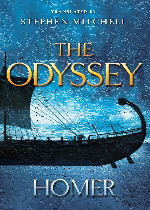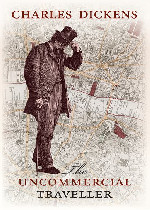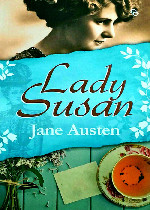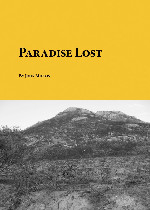
The Odyssey (/ˈɒdəsi/; Greek: Ὀδύσσεια Odýsseia, pronounced [o.dýs.sej.ja] in Classical Attic) is one of two major ancient Greek epic poems attributed to Homer. It is, in part, a sequel to the Iliad, the other work ascribed to Homer. The Odyssey is fundamental to the modern Western canon; it is the second-oldest extant work of Western literature, while the Iliad is the oldest. Scholars believe the Odyssey was composed near the end of the 8th century BC, somewhere in Ionia, the Greek coastal region of Anatolia.

The Uncommercial Traveller(不做生意的旅行者) 立即阅读
The Uncommercial Traveller is a collection of literary sketches and reminiscences written by Charles Dickens, published in 1860-1861. In 1859 Dickens founded a new journal called All the Year Round and the Uncommercial Traveller articles would be among his main contributions. He seems to have chosen the title and persona of the Uncommercial Traveller as a result of a speech he gave on 22 December 1859 to the Commercial Travellers' School London in his role as honorary chairman and treasurer. The persona sits well with a writer who liked to travel, not only as a tourist, but also to research and report what he found visiting Europe, America and giving book readings throughout Britain.

Lady Susan is a short epistolary novel by Jane Austen, possibly written in 1794 but not published until 1871. This early complete work, which the author never submitted for publication, describes the schemes of the title character. Lady Susan Vernon, a beautiful and charming recent widow, visits her brother- and sister-in-law, Charles and Catherine Vernon, with little advance notice at Churchill, their country residence.

Paradise Lost, epic poem in blank verse, one of the late works by John Milton, originally issued in 10 books in 1667 and, with Books 7 and 10 each split into two parts, published in 12 books in the second edition of 1674. Many scholars consider Paradise Lost to be one of the greatest poems in the English language. It tells the biblical story of the fall from grace of Adam and Eve (and, by extension, all humanity) in language that is a supreme achievement of rhythm and sound. The 12-book structure, the technique of beginning in medias res (in the middle of the story), the invocation of the muse, and the use of the epic question are all classically inspired. The subject matter, however, is distinctly Christian.